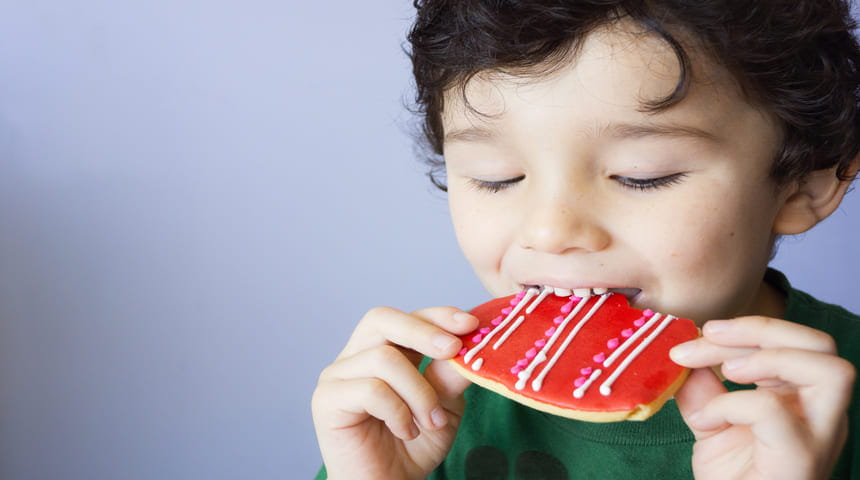Is Your Infant or Child Constipated? Here’s How To Help
If you’ve ever had to potty train a toddler, you're familiar with the best-selling children’s book “Everyone Poops.” But what happens when your baby – or older child – suffers from constipation?
Constipation can cause distress at any age — even for infants and children. Fortunately, this common childhood ailment is rarely dangerous, but it could signal another physical or emotional issue.
How To Recognize Symptoms
Constipation is defined by fewer bowel movements and/or pain during their passing. Infants will normally have up to four or five stools a day, decreasing to just once daily, or even every other day, as they start eating solid foods.
It’s easy to monitor a baby’s bowel movements when you’re changing their diapers. But older children and teens might not understand what is happening or feel comfortable telling you. So you should be on the lookout for the following potential signs:
-
Having fewer than three bowel movements a week
-
Passing stools that are hard, dry or lumpy and that are painful or difficult to pass
-
Finding diarrhea or fecal soiling in their underwear
-
Expressing feelings that not all the stool has passed (they still “have to go”)
-
Experiencing swelling or bloating in the abdomen
-
Wetting during daytime or nighttime
-
Adjusting body positions to avoid or delay bowel movement (such as rocking, dancing or clenching their buttocks)
-
Decreasing appetite and losing weight
-
And in severe cases, experiencing rectal prolapse, anal fissures or hemorrhoids that can result from straining
Causes of Childhood Constipation
While some children’s constipation can be traced to a medication, illness or a neurological problem such as cerebral palsy, most cases stem from functional and emotional responses to diet, routine or stress.
-
Diet: With toddlers, constipation can occur as their body’s digestion system transitions from liquids to solids. But as children get older, what they eat can be the culprit. Snacks and fast food are notoriously high in fat and low in fiber. Not drinking enough water during the school day results in drier stools that can be hard to pass. And meals high in dairy — particularly milk, yogurt and cheese sticks — can cause constipation in some children.
-
Routine: Just as traveling for work might affect an adult, changes in school or home routines can upset a child’s system and regularity. Your child can both consciously and subconsciously train themselves to delay or “withhold” their body’s normal bowel routine.
-
Stress: At any age, stress affects the body. For toddlers, the pressure of toilet training or reluctance to use unfamiliar bathrooms can keep them from trying. Privacy issues or restroom cleanliness might bother a teenager. And if a previous bout of constipation caused pain, the fear of discomfort might contribute to them continuing to withhold.
While occasional constipation is not abnormal, if your child’s health condition or practice of withholding become chronic, the issue can become harder to resolve.
Keep System Running Smoothly
In addition to a variety of over-the-counter medications, there are simple actions that you and your child can take to resolve and prevent constipation.
-
Eat a healthy diet rich in fiber, specifically insoluble fibrous food such as leafy vegetables, bell peppers, whole grain breads and brown rice. Use this formula to figure out how much fiber your child needs daily:
Minimum: Child’s age + 5 = grams of fiber
Maximum: Child’s age + 10 = grams of fiber
For a list of recommended food choices by serving size and fiber content by gram, click here.
-
Stay hydrated with water and natural homemade fruit juices. Water binds with a high-fiber diet to move feces through the system easier and keep dehydration at bay.
-
Support your child’s toilet training efforts. Toddlers can be stubborn and resistant to change, so be sure to focus on reward rather than punishment.
-
Encourage physical activity. As kids get older, their school days and lifestyle can become more sedentary. Remind them that to get things moving, they need to keep themselves moving as well.
With chronic cases, your doctor may recommend anorectal manometry and biofeedback treatment to help your child regain physical control over their bowel movements. These simple tests determine if children are experiencing normal physical sensations. Fun, computer-assisted feedback exercises help retrain them to correctly hold and pass stool.
Finally, should their symptoms become more severe, last more than a couple days or include vomiting, fever or headaches, always see your child’s physician.
Are You Interested in Learning More?
Sign up for our e-newsletter for more tips and best practices from pediatricians.
Sign Up Here










